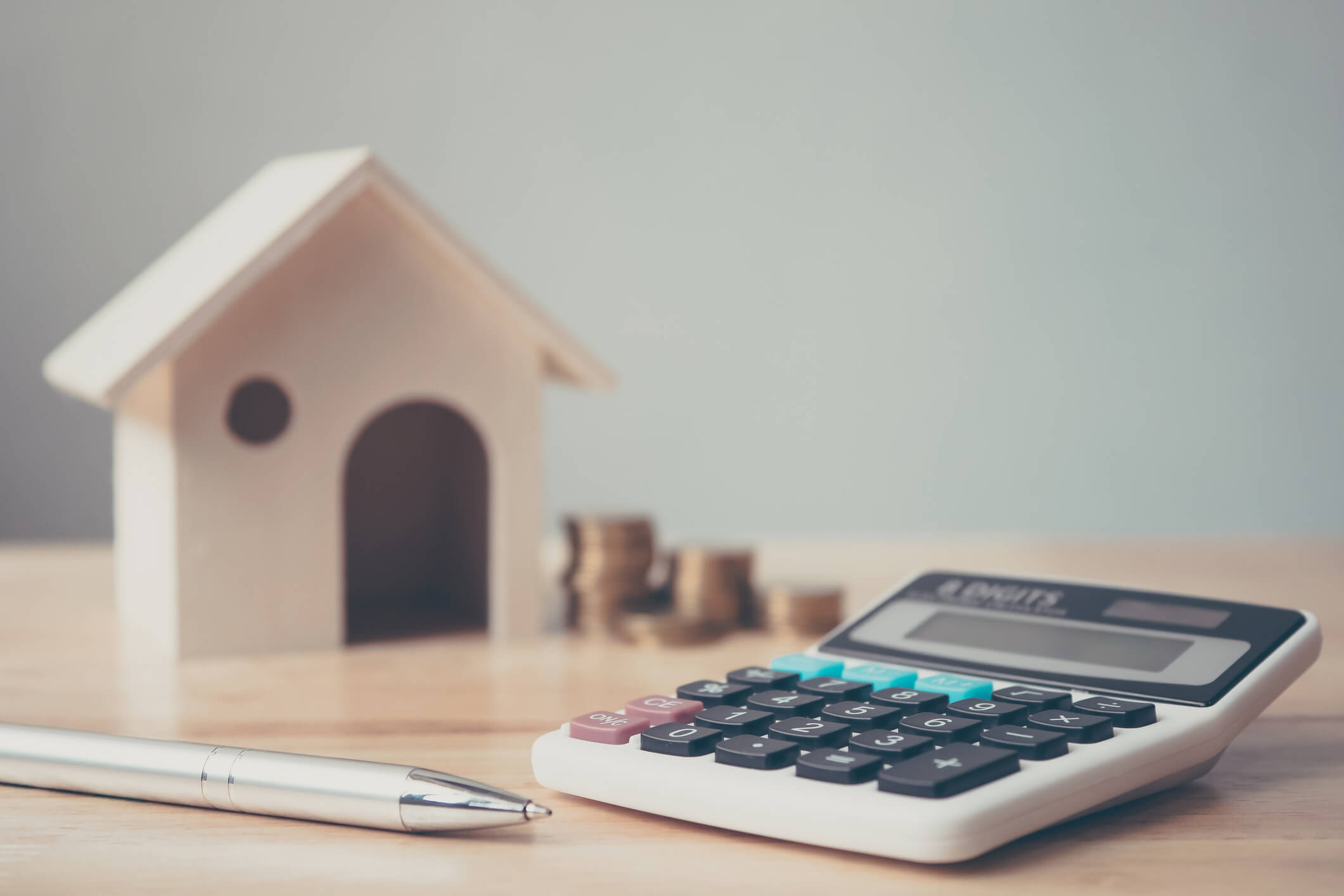
What is a homeowner loan?
Homeowner loans are also known as secured loans or second-charge mortgages. This type of loan allows homeowners to borrow money against their property. Almost any type of property can be used as security - whether you live in a house, bungalow, or flat.
Lenders may be more willing to approve your secured homeowner loan, even if you don’t have a good credit history. Plus, you may be able to access larger amounts of money at lower interest rates (compared to a personal loan).
With homeowner loans, it is important that you keep up with repayments, as the lender could sell your property to claim back unpaid funds – though, this is usually a last resort.
Homeowner loans are secured against your property. This means your home may be at risk if you fall behind with your payments. We are a broker and we arrange secured loans from a panel of lenders. We receive commission upon completion. Fees may be payable depending on your choice of financial product. The rate you're offered and the fees will depend on your circumstances and will be discussed prior to you proceeding with your loan.
What can I use a homeowner loan for?
You can spend a homeowner loan on a major expense or put it towards a handful of different purposes - the choice is yours. We find the most common reasons people take out a homeowner loan include:
Making large home renovations - You could use the money to pay for a new bathroom, conservatory or loft conversion, for example.

Consolidating multiple debts - If you’re juggling several debt repayments, you could take out a homeowner loan to pay off all those existing debts, so you only need to make one payment each month. Just remember, extending the term could mean you end up paying more interest overall.

How do homeowner loans work?
When you take out a homeowner loan, you borrow a lump sum of cash against your home and repay it in monthly instalments (including interest), over an agreed number of years.
When it comes to repaying the loan, you make the payments separately from your mortgage. But like a mortgage, the loan is tied to your home. So, it’s important that you always pay on time and only borrow what you need.
How much can I borrow with a homeowner loan?
We can help find you a homeowner loan from £10,000 up to £500,000. The actual amount you can get will depend on your personal circumstances, such as your affordability, credit history, and equity, for example.

Who are homeowner loans suitable for?
Homeowner loans are designed for individuals with a mortgage who typically want to borrow large sums of money. They can be suitable if you:
- Own your home
- Want an alternative to remortgaging
- Are struggling to be accepted for a personal loan
- Want to cover large expenses, e.g., home improvements
- Need to consolidate existing debts
- Prefer to pay the money back over a long term
Whether this type of loan is suitable for you depends on your individual circumstances. If you need help deciding on the best option, one of our qualified advisers can provide free professional advice with no obligation. Simply complete our secured loan form to initiate a call.
Estimated monthly payments
Illustrative Rate 8.3%
Representative Example: If you borrow £20,000 over 7 years, initially on a fixed rate for 5 years at 6.718% and for the remaining 2 years on the Lender's standard variable rate of 10.338%, you would make 60 monthly payments of £343.89 and 24 monthly payments of £356.65. The total amount of credit is £22,995 (this includes a Lender Fee of £595 and a Broker Fee of £2,400). The total repayable would be £29,288 (this includes a Lender Exit Fee of £95). The overall cost for comparison is 12.1% APRC representative. This means 51% or more of customers receive this rate or better.
Or are you looking to borrow less than £10,000? If so, a personal loan may be more suited to your needs.
Representative Example: If you borrow £20,000 over 7 years, initially on a fixed rate for 5 years at 6.718% and for the remaining 2 years on the Lender's standard variable rate of 10.338%, you would make 60 monthly payments of £343.89 and 24 monthly payments of £356.65. The total amount of credit is £22,995 (this includes a Lender Fee of £595 and a Broker Fee of £2,400). The total repayable would be £29,288 (this includes a Lender Exit Fee of £95). The overall cost for comparison is 12.1% APRC representative. This means 51% or more of customers receive this rate or better.
The amount we show is an estimate based on an Illustrative Rate. You can choose to pay the Broker Fee separately or have it added to the total amount of credit, which would increase the amount of interest you pay overall. Arranged rates from 8.3% to 23.2% APRC. Repayment terms between 3 and 30 years.
Our secured loan lenders
We search 100s of loans from our panel of trusted lenders to find the best deal for you.
Can I get a homeowner loan with bad credit?
Yes, you could still be accepted for a homeowner loan, even if you have a poor credit history. As the lender has the added reassurance of your home being offered as security, your chances of approval are likely to be higher than with unsecured forms of lending (such as personal loans and credit cards).
As long as you make your monthly repayments on time, every time, then your credit rating should gradually start to build back up (but missing payments can have the opposite effect).
What's the difference between a secured homeowner loan and an unsecured loan?
Secured loans
Your home is used as collateral: As a result, you pose less of a risk to the provider, meaning you may be able to borrow more - up to £500k in some cases
Lower interest rates: Due to the added security for the lender, they may offer you lower interest rates
Spread repayments over a longer period - typically 3 to 30 years: Secured loans tend to run over a longer timeframe, referred to as the 'term' of the loan
More likely to be accepted: As your home is used as collateral, lenders may be more willing to lend to you even if you have a poor credit history
Unsecured loans
No collateral required: You do not need to be a homeowner to take out an unsecured loan, and your property won't be used as collateral
More varied terms: Interest rates can vary by a wider range due to the lack of security provided to the lender
Shorter payment periods - usually between 12 months and 5 years: Unsecured loans tend to run over a smaller term, generally due to the smaller amount being borrowed
Quicker application process: As a result of the simpler setup procedure, unsecured loans can be completed at a faster rate
What should I consider when choosing a homeowner loan?
If you use a secured homeowner loan to consolidate existing debts, your loan term may end up being extended. This can reduce your monthly repayments, but the amount you pay in interest may increase overall.
Remember that the loan is secured against your property, so it’s important that you can afford the repayments, to prevent your home from being at risk. Before you apply for a loan, try an eligibility checker to see the loan rates you qualify for – this won’t affect your credit score.
How do I find the best homeowner loan for me?
At Ocean, we specialise in finding the best loans for our customers. We compare 100s of loans from our panel of lenders to find a loan to suit your exact needs – even if you don’t have the best credit score.
Simply follow these steps:
- Click ‘Get a quote’ and complete our online form
- See the loan rate you’re approved for
- Find out if you can get an even better rate over the phone – tailored to you
- Finalise your loan and receive the money
Personal Finance WriterA homeowner loan may enable you to borrow more money at lower interest rates than a personal loan. This is because the loan is secured against your property. You could use this for multiple purposes, including consolidating debts and making home improvements. Before you apply, make sure you can afford the repayments for the full loan term.”
Need help with debt?
Life can take an unexpected twist when we least expect it. If you're struggling with debt, talk to your lender straight away to see if there’s anything they can do to help. For more information and free, impartial advice, get in touch with:
How could we help you?
Ocean has provided access to loans, credit cards and mortgages to people across the UK since 1991. In this time, we’ve pre-approved more than a million people, offering products and advice to suit their circumstances.
- All credit histories considered
- Check your eligibility without affecting your credit score
- Save time finding the right loan deal
You can learn more about Ocean on our about us page.
Homeowner loans are secured against your property. Before you apply for a secured loan, be aware that your home is used as security. This means your home may be at risk if you fall behind with your secured loan or mortgage repayments.
Remember, if you consolidate your existing borrowing, you may be extending the term and increasing the amount you repay in total.
Last updated
Fact-checked
This page has been reviewed to ensure it is accurate and compliant with FCA guidelines.
For more information on our fact-checking process, read our editorial policy.














